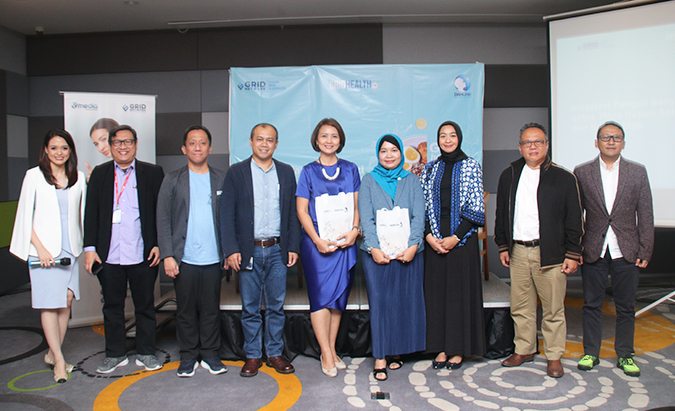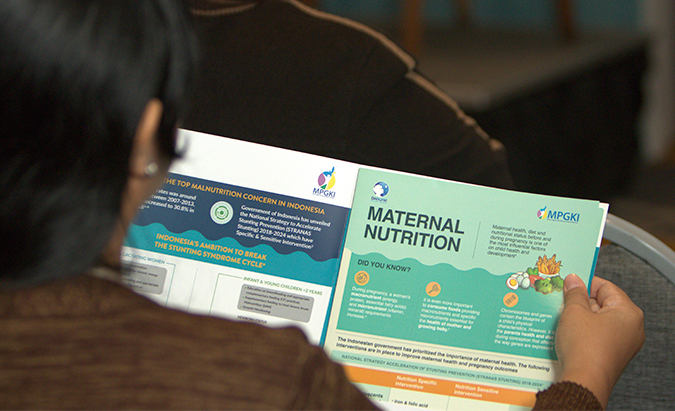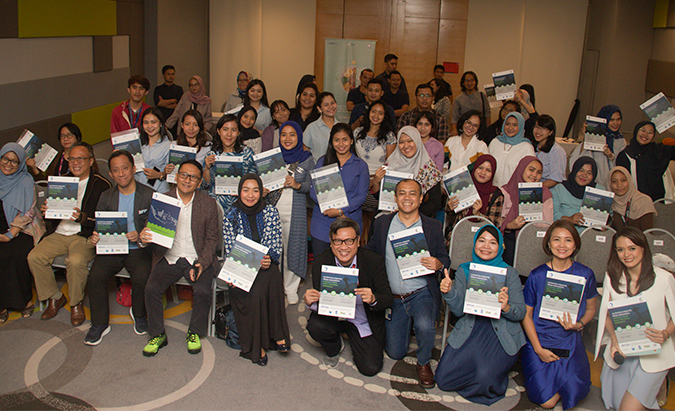Media Information
Are you a journalist, publisher, or media communications professional ?
We are here to answer any questions you may have related to news group / data, interview requests, partnership requests.
Are you a journalist, publisher, or media communications professional ?
We are here to answer any questions you may have related to news group / data, interview requests, partnership requests.

Jakarta, February 14, 2020. Malnutrition, which is a condition of excess or malnutrition, is still a global concern. This problem is important for us to respond together because malnutrition is closely related to nutritional status, health, to intelligence, the future, and the country's defense. Including, its impact on the threat of disease, both infection, let alone degenerative contagious, is also no exception to non-communicable diseases. Gridhealth.id together with Danone Specialized Nutrition (SN) today held a Grid Health Talk with the theme "You Are What You Eat: Investment in Nutritious Food for a Healthy Quality Future", by presenting speakers from the medical and financial world.
Malnutrition in children has an acute and chronic impact. Children who experience acute malnutrition will look physically weak. Children who experience malnutrition in a long time or chronic, especially those that occur before the age of two years, will be hampered by physical growth so that it becomes short (stunted) one of them. This condition is more risky when nutritional problems have begun to occur since in the womb.
This condition is illustrated in the NutriPlanet study initiated by Danone SN Indonesia. Vera Galuh Sugijanto, Danone Indonesia's Vice President General Secretary stated, "We believe in the power of nutrition, to make a positive and proven difference to health. Through this study we try to understand the local conditions of the nutritional status of mothers and children. There have been many studies conducted in the field of nutrition of mothers and children so far, but are still often fragmented. Through this study we hope to help provide a complete picture so that we can contribute further through developing nutritional solutions that are relevant to the community. "
Data presented from the Nutriplanet study shows that maternal and child nutrition problems in Indonesia occur as in a continuous cycle, starting from pregnancy, children under two years of age, under five years old, until they become adults and prepare to become parents. In these data it can be seen clearly if the prevalence of malnutrition in children under five in Indonesia reaches 30.8% for stunting and 17.7% for underweight (Riskesdas 2018). This condition is partly due to the condition of pregnant women who 55% experience lack of energy intake (SKMI 2014), one third of them face anemia (Riskesdas 2013).

Meanwhile, at school age 80.9% of children at school age (4-12 years in Jakarta) experience a lack of EPA + DHA intake (Neufingerl et al, 2016). In general, Indonesia's population, including> 95% of adults, has inadequate intake of fruits & vegetables. Another fact is, 1 in 6 adults in Indonesia suffer from anemia.
The program was hosted by Glory Oyong, Kompas TV presenter and mother of two toddlers who care about children's growth and development, presenting speakers; dr. Juwalita Surapsari, M.Gizi, Sp.GK, Erlina Juwita MM, CFP, QWP.
dr. Juwalita Surapsari, M.Gizi, Sp.GK stated, "nutrition investment is very important to begin before pregnancy as a long-term investment in children's health. Like stunting, for example, this condition can actually be prevented if the mother has good nutrition. During pregnancy, the mother needs macro nutrients and protein to support the baby's height and the calorie intake for her weight. If these needs are not met, it can have an impact on babies born with a low weight and risk of stunting in the future if the nutrients are not pursued for the first 2 years. "
According to Dr. Juwalita, stunting is a condition of chronic malnutrition, and can not be overcome anymore after the child enters the age of 2 years, and this will adversely affect the health of the child. Children who are stunted will experience various mental and physical health problems that apply for life, and can not be restored.
On the other hand, Erlina Juwita MM, CFP, QWP (Financial Planner) said, "nutrition fulfillment in the first 1000 days of life is including investment for the future, because if parents do not pay attention to this aspect, the impact will be large later on for financial conditions. family both in the short and long term. The positive impact of investing in nutritious foods will not only be felt by parents, but also their offspring in the future. "
Vera added, "Health from food is not just a necessity, but a shared responsibility. As a company that wants to bring health through food to as many people as possible, we are committed to continue to contribute positively to improving the nutritional status of mothers and children through our expertise in science, as well as sharing the knowledge we have with experts and anyone who has concerns that same with us. "
In addition to conducting various researches, Danone SN continues to carry out nutrition education programs to the community, among others through the Joint Danone Prevent Stunting program, the contents of my plate, Healthy Child Stalls and Nutrition Talk. The Piringku Contents Program provides a balanced nutrition education guide for children aged 4 to 6 years and has educated 14,400 children and 1,400 teachers in 360 early childhood education institutions in 11 cities in Indonesia. In addition, the Warung Anak Sehat program has empowered 350 Canteen Mothers through micro entrepreneurship model training through the provision of healthy snacks for 27,000 school children in 4 cities, Ambon, Bandung, Bogor and Jogja.
"We are pleased to be working with Danone SN because we have the same attention in the health sector. The message 'You Are What You Eat' is very relevant to us and I hope today's educational activities can add to our insights about the importance of investing in our health through nutritious food, for the time with our children and grandchildren who are more qualified. ", Concluded Devi Situmorang.